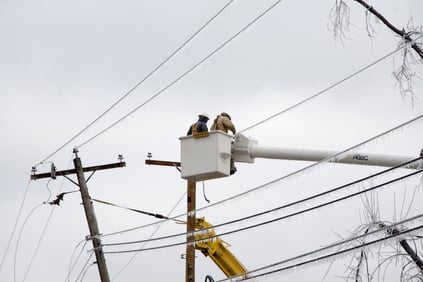Network reliability is a pretty hot topic these days, and for a good reason. It’s what keeps businesses functioning when they otherwise might not. However, all the new hardware and software that money can buy will not allow you to springboard past network issues.
Reliable networks are what businesses want, but figuring out how to get one isn't always an easy path. If you’ve ever had phone lines or another business application fail because of environmental factors, you’ve experienced an unreliable network. As an integrated technology service provider, Marco works with businesses to ensure they have reliable networks that includes a cloud-based phone system.
Is Your Network Reliable?
 This is a question all businesses should consider. I hope the answer is “yes.” If it’s not, you have a little work ahead of you—but it’ll be well worth it in the end.
This is a question all businesses should consider. I hope the answer is “yes.” If it’s not, you have a little work ahead of you—but it’ll be well worth it in the end.
When determining network reliability, you'll want to look at your current setup. My area of expertise is in communication systems, so we’ll look at the issue through business phone systems. Without network reliability, business phone lines can fail or stop working due to environmental factors such as fire, heat, cold or water damage. Other factors that can affect network reliability include power outages, telecom line outages and Internet connectivity outages.
The Importance Of Network Redundancy
With network redundancy, businesses have multiple ways to receive the services they need to function. When it comes to business communication, look for a system that’s backed by an SLA (service level agreement) for uptime, as well as an SLT (service level target) for support. Additionally, ensure there are multiple nodes both physically and geographically redundant providing services. Lastly, be sure to leverage technology at your location that allows the use of multiple connections simultaneously. These things together will keep your business communicating.
Businesses can build onsite redundancy, which requires them to build high availability pairs of every network asset and connection, but there is an easier way.
UCaaS Has Built-In Redundancy
When it comes to business communication, you can choose a solution and a provider that includes network redundancy as part of their offering. Take Unified Communications as a Service (UCaaS), for example. With UCaaS, businesses are protecting themselves against Internet failure, power outages and damage to phone lines. It’s a service that is built upon a foundation of network redundancy and reliability. Instead of being housed onsite, UCaaS is a cloud-based service.
Because our UCaaS offering is powered by Mitel software, the entire communication suite is run in what’s called high-availability clusters. In the highly unlikely event a data center issue occurs, it’s a simple point-and-click process for us to move it to another data center and have customers like you up and running in a matter of minutes.
If you’d like to learn more about how working with us can help your business with network reliability, contact a Marco rep today. With Marco's Unified Communications Readiness Assessment, we determine what it’ll take to bring your business communications up to speed.
If you've got technology questions, we've got technology answers.